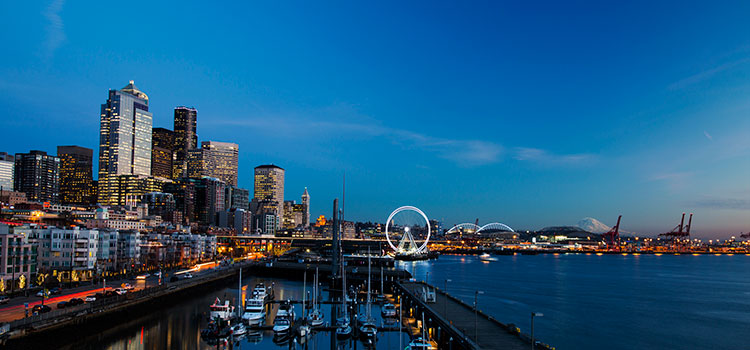The curtain is closing on medical cannabis in Washington, but Seattle-based dispensary owner John Davis is not giving up the fight to save his business.
Davis is appearing in court today to represent his business, the Northwest Patient Resource Center, and the plight of several other Seattle-based dispensaries, in a lawsuit against the Washington State Liquor and Cannabis Board. The suit accuses the agency of neglecting its duties and implementing an unfair and sloppy transition process away from the state’s heritage medical marijuana industry.
Though he was among the first to submit his application last October to be one of Seattle’s final cannabis dispensary licensees, “Somehow my information got put in wrong, and they weren’t sending me the emails,” Davis said.
Weeks passed, and when he didn’t received word about his application status, Davis began making inquiries with the Liquor and Cannabis Board. “At that time, they were saying, ‘Oh don’t worry about it … it takes some time, we’re all busy, we’ll get to you, don’t worry.’ Finally, I called up [LCB Director] Rick Garza. He said, ‘Let me check into it,’ and he called me the next day.”
Davis met with Garza and an investigator, and they revealed that his email address had entered their system incorrectly, and all of the information pertaining to his licensing process had instead been sent to one of his competitors. At that point, they shuffled his case through several different investigators to hopefully find a solution to the problem. However, by the time the mistake was rectified it was too late — the 21 additional licenses that had been allotted to Seattle under SB 5052 had been snatched up, and mostly by newcomers to the industry.
“You might want to move your proposed location,” an LCB-appointed investigator told Davis at the time.
“I don’t have a proposed location, I have a location,” Davis replied. “I have an operating business that employs people.”
In a phone interview, Davis told Ganjapreneur that at first he was optimistic about his chances of retaining his Seattle-based dispensary:
“The thing was supposed to be a competitive, merit-based application process. Pitch competing applications against each other based on merit? I’m like, ‘Hey that’s fine. I will pit my merit up against anyone else’s.'”
But that’s simply not how things went down.
Knowing it was his only chance at recourse, Davis filed suit in January. “The Liquor and Cannabis Board acted contrary to the plain language and to the intent of the law, and did not move over medical operations,” Davis said. “That was the mandate given to them by the legislature, but they did not care about moving over medical. They didn’t care about medical at all.”
Unlicensed medical cannabis operations will be fully criminalized starting tomorrow, July 1, despite announcements from the state that the government-managed registry of medical cannabis patients may not be ready, meaning patients in need will not have adequate access to their medicine.
A protest is taking place in downtown Seattle this afternoon against the damages caused by the merging of the two markets.
